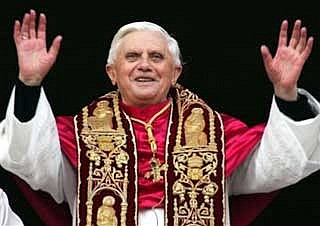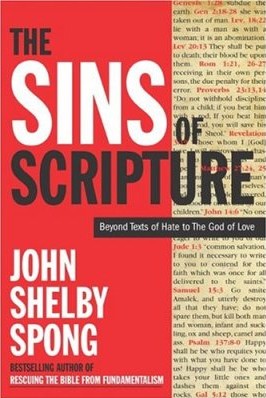The New Pope and Journalism's Crisis of Faith
The papacy of Benedict XVI confronts journalists with a key question: How much critical scrutiny is appropriate when a religious leader gains enormous power?
So far, most American media outlets seem to be walking on eggshells to avoid tough coverage of the new pope. Caution is in the air, and some of it is valid. Anti-Catholic bigotry has a long and ugly history in the United States. News organizations should stay away from disparaging the Catholic faith, which certainly deserves as much respect as any other religion.
At the same time, the Vatican is a massive global power. Though it has no army, it is more powerful than many governments. And in the present day, the headquarters of the Roman Catholic Church is the capital of political reaction garbed in religiosity. Many dividing lines between theology and ideology have virtually disappeared.
After more than two decades as a Vatican power broker, Joseph Ratzinger is now in charge as Pope Benedict XVI. He is extremely well-positioned to push a longstanding agenda that includes hostility toward AIDS prevention measures, women's rights, gay rights and movements for social justice. No one in the hierarchy was more committed to stances like vehement opposition to condoms while millions of people contracted cases of AIDS that could have been prevented. And he has been the commander of the Vatican's war on liberation theology.
During the 1980s, it was Ratzinger who led the charge from Rome against the wondrous spirit and vibrant activism that galvanized Catholics and others across Latin America. While many priests, nuns and laity bravely joined together to challenge U.S.-backed regimes inflicting economic exploitation, intimidation, torture and murder with impunity, Ratzinger used the Vatican's authority to undermine such community-based resistance. He silenced outspoken Church officials and installed orthodox clergy who would go along with the deadly status quo.
Hours after the smoke cleared over the Vatican and the world learned the name of the new pope, Mary Jo McConahay -- an insightful journalist who has long covered Latin America -- wrote for Pacific News Service about a question blowing in the wind. "What would have happened, Guatemalans and El Salvadorans ask to this day, if Ratzinger and Pope John Paul II had regarded the Latin American call for liberation from autocratic rulers with the same force with which the European churchmen supported the Polish Solidarity revolution?"
For right-wing religious activists, Ratzinger has been a Godsend. And now that he's running a church with 1.l billion members, the odds are excellent that he will proceed to gladden the hearts of misogynists, homophobes, and anti-left crusaders around the world. Contrary to the predictable media spin since Tuesday about the uncertainty of his papal course (reminiscent of the claims in early 2001 that George W. Bush might turn out to be some kind of moderate president), everything we know about Ratzinger's extensive record during the last quarter-century tells us that he is a reactionary zealot who is determined to shove much of the world's history of progressive social change into reverse. He is a true believer whose ideological theology accepts scant diversity and no dissent.
The new papacy is a huge gift to the minority of conservatives in the United States who are trying to impose their version of morality on the country and the world.
Soon after the 2000 election, an astute analyst of far-right religious movements, Frederick Clarkson, wrote that "both the evangelical and Catholic Right are developing and promoting a long-term, fundamental approach to the practice of faith that links political involvement with faith itself. In this case, the Catholic Church is building on its own history and also benefiting from the Christian Right's recent efforts to create wider space for public expressions of religiosity in civil discourse." Clarkson added that "a shift in the political culture suggests that personal and unedited expressions of religious belief for political purposes are no longer considered unseemly. Indeed, the suggestion is that they are beyond reproach."
And that's much of the problem. When a highly debatable position is "beyond reproach" -- when religiosity provides cover for all manner of manipulations and repression -- it's easier for demagogic power-mongers to get away with murder.
Journalists should not let any pious proclamations intimidate them. When the policies of a president or prime minister result in suppression of human rights or fuel public-health disasters, the news media should not hesitate to expose the consequences. And the policies of a pope should be no less scrutinized.
Norman Solomon's latest book, "War Made Easy: How Presidents and Pundits Keep Spinning Us to Death," will be published in early summer. His columns and other writings can be found at: www.normansolomon.com.



